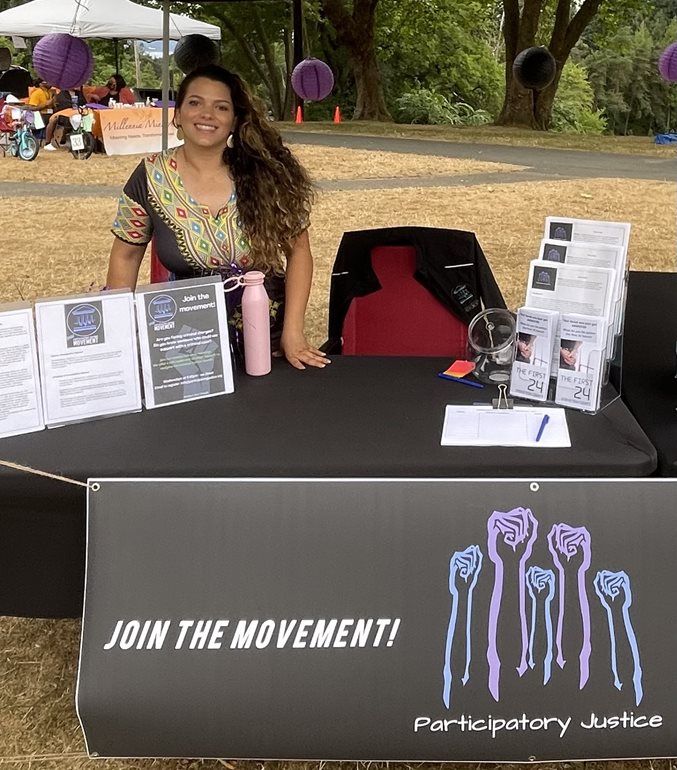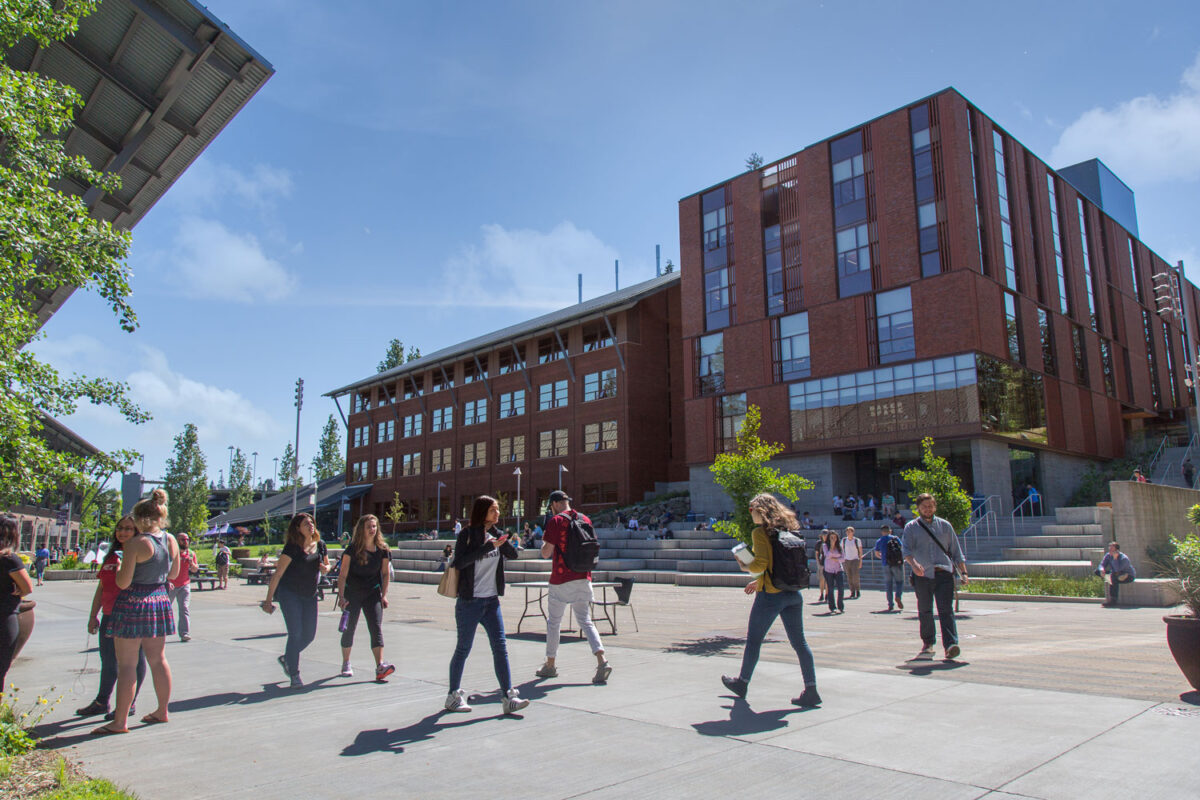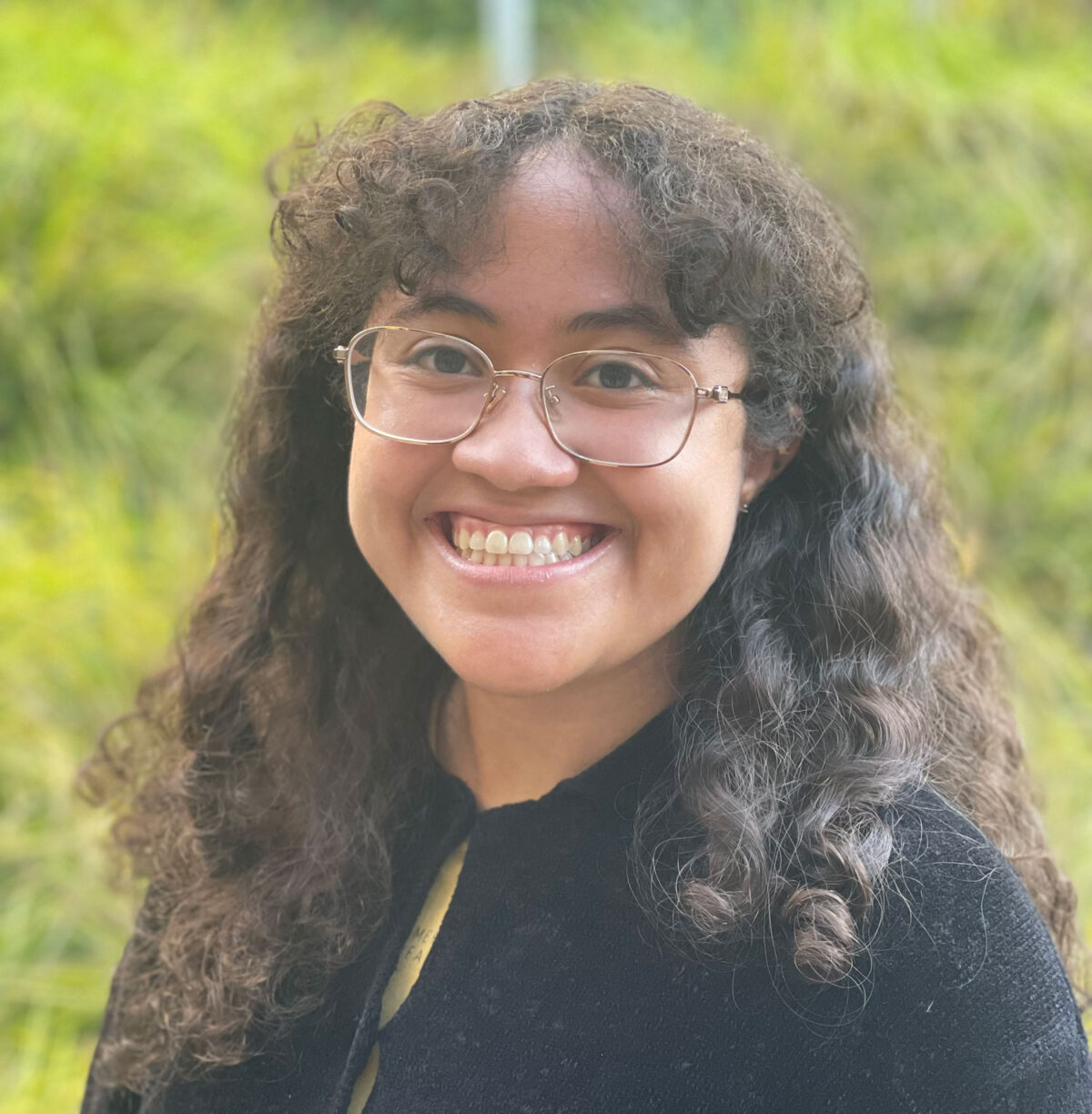
Kristina Jorgensen never thought they would attend college, let alone pursue a master’s degree — especially after dropping out of high school at age 16, pregnant, and trying to navigate a toxic marriage. “The first time I thought about going to college, my husband told me I didn’t know what I was doing,” Jorgensen said. “He made me feel unworthy of an education.”
The cycle of being in an unhealthy relationship, pain from untreated trauma and a lack of healthy coping skills led Jorgensen to drugs. They ended up losing custody of their children, their home and even their sense of self.
Jorgensen hit rock bottom, but didn’t stay there.
They now have a bachelor’s degree from the University of Washington Bothell in Society, Ethics & Human Behavior, with a minor in Gender, Women & Sexuality Studies. They are in the process of completing a master’s degree, also from UW Bothell, in Policy Studies.
And to recognize all Jorgensen has both overcome and accomplished, they have been named one of the 2021 Husky 100.
Each year, the UW recognizes 100 undergraduate and graduate students from the Bothell, Seattle and Tacoma campuses who are actively connecting what happens inside and outside of the classroom and applying what they learn to make a difference. Jorgensen is one of 12 students from UW Bothell to be recognized last academic year.
Life-changing moment
Intergenerational poverty, violence and addiction plagued Jorgensen’s family, and education was not a central conversation at the dinner table. Jorgensen wanted a way out of the familial cycle and dreamed of becoming a lawyer.
“I thought others would respect me in a different way if I were a lawyer, that I wouldn’t be seen as a poor, brown, single mother with a history,” they said. “Instead, I would be an empowered, educated woman of color who defeated the odds and was just as deserving to have a seat at the table as a white privileged person.”
They still remember taking that first step toward making their dream a reality when they took their first step on campus as a Everett Community College student in 2014. “I was so scared. I was walking to class and started to cry,” they said. “I turned around to leave and ran into my cousin who worked there, and I just broke down. I told her I didn’t think I could do it, and she said to just go to one class and that if I didn’t like it, I didn’t have to go back.
“Turns out I love school so much I want to get my Ph.D.”
Now seven years free of drugs and alcohol, Jorgensen has custody of their children, a place to call home and, ultimately, a life that makes them proud.
Tools for justice
Dr. Miriam Bartha, director of graduate programs and strategic initiatives in the School of Interdisciplinary Arts & Sciences, said Jorgensen’s desire to reunite with their children led to them to reclaim their life and their voice.
“They worked their way through college and now are in graduate school while parenting and working passionately to support others navigating similarly difficult situations and returns,” Bartha said.
Jorgensen’s love for education and desire to become a lawyer has opened many doors. In 2016 while at the community college, they participated in their first work study position with the Washington Defender Association, the only organization in the state dedicated solely to public defense reform. Jorgensen organized a participatory defense training for community advocates and criminal defense attorneys in Snohomish County.
“Participatory defense is a community organizing model that amplifies the voices of the people who face criminal charges as well as the voices of the accused family members and communities,” they explained. “It’s a way to remind the court of the accused’s humanity and advocate for alternatives for accountability besides time behind bars.”
Ten years ago, members of Jorgensen’s family were incarcerated, facing significant charges. One served 10 years in prison.
“I wish I had the tools and knowledge from participatory defense when my family members were going through their cases,” Jorgensen said. “That is why I am so determined to bring this model to my community, so other families can benefit from it in ways I wish I could have.”
Classroom to community
In 2017, Jorgensen came to UW Bothell. One of the courses they took was the Washington, D.C., Human Rights Seminar. The class focuses on the construction of human rights policy at the national and international levels, with a particular emphasis on engaging with the policy-making process in Washington, D.C. It changed the trajectory of Jorgensen’s life.
They spent a week at the U.S. Capitol meeting with legislators, federal agencies, human rights non-governmental organizations, foreign embassies and think tanks to research human rights violations and possible policy responses.
“I realized I didn’t need to become a lawyer to advocate for social justice, though becoming a lawyer isn’t off the table,” Jorgensen said. “The experience inspired me to continue my education through the Master of Arts in Policy Studies program.”
In June 2020, Jorgensen became the first in their family to earn a bachelor’s degree. The following September, they started the MAPS program. During this time, they also were dealing with a younger sister, who is a survivor of domestic violence, possibly becoming incarcerated.
Jorgensen said this has been extremely difficult on the family. “I am caring for her two children and experiencing the re-traumatization of what happened to my family 10 years ago,” they said. “But this time, I have new tools.”
Opportunities for others
One of Jorgensen’s first courses in the MAPS program was Policy Process and Analysis. Determined to not lose another family member to incarceration, Jorgensen decided to do their class research on legal protections for survivors of domestic violence. They discovered the Domestic Violence Survivors Justice Act that was passed in New York in 2019. It was a highly anticipated law that allowed for more lenient sentencing of survivors of domestic violence who have been convicted of a crime.
Jorgensen then quickly connected with Collective Justice, a restorative justice organization in Seattle, and in just a matter of months had organized and proposed The Survival Justice Act, which is the first legislation of its kind in Washington that would establish compassionate sentencing for domestic violence survivors.
“The act, which is currently being worked on by members of Congress, would allow judges to impose no jail or prison time and instead offer community alternative programs,” Jorgensen said. “I really felt that the universe aligned everything at the right time. I was able to connect my personal life to my education and potentially impact lives far beyond myself or my loved ones.”
Bartha was impressed by how Jorgensen channeled their learning into championing opportunities for others, through advocacy and policy. “Their direct experience of challenge and hardship, together with their systemic analysis, make them a forceful leader who is already creating much needed change, contributing to legislation to protect survivors and assisting those who are ‘justice-involved’ in advocating for themselves and their families.
“Kristina is truly being the change they want to see in the world and showing us how it can be done.”
Fighting for freedom
Jorgensen was recently awarded a $100,000 grant targeted at capacity building for Black, Indigenous and People of Color leaders who serve marginalized communities. Endorsed by the Community Foundation of Snohomish County, the grant is for Participatory Justice, the organization Jorgensen is building.
“It’s a grassroots media justice and networking organization inspired by reducing disparities and creating equity by empowering individuals and communities to step into their power and become agents of social and systemic change,” Jorgensen said.
They are now in the process of developing a strategic plan, trying to secure funding and increasing capacity. “I am focused on building deep relationships in the community and continuing to tell the stories of our people so we can free them all.”



